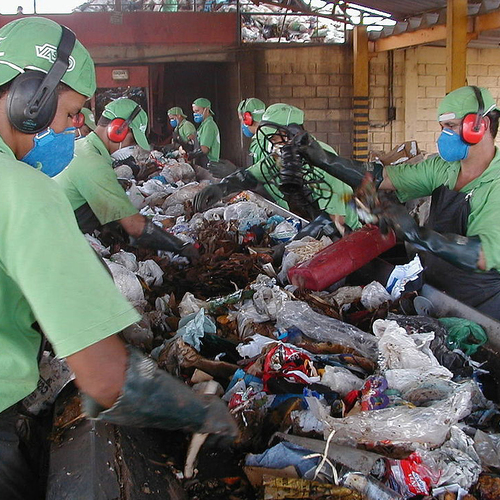A study of the connections between allergies and indoor pollutants turns up a link between vinyl flooring and autism, prompting calls for more-specific research
In a Pro/Con GreenBuildingAdvisor forum published in January, two experts offered their opposing views on whether vinyl is green.
Patrick Moore, chairman and chief scientist of Greenspirit Consultancy Ltd., argued that life-cycle analyses of vinyl show it is environmentally friendly, and that its affordability, renewability, and durability make it an excellent green building material.
Bill Walsh, founder and executive director of Healthy Building Network, emphasized that the heavy use of chlorine gas in vinyl production and the release of chemical by-products and phthalate plasticizers during vinyl’s life cycle disqualify it as a green building material.
Now we have a new hook for the debate. Last week, Environmental Health News published a story about research conducted by Swedish and U.S. scientists that attempted to examine links between allergies and indoor pollutants. One of the findings – a correlation that surprised and puzzled the researchers – was that families with autistic children were twice as likely to have vinyl flooring, as opposed to wood or linoleum flooring, in their homes.
Unexpected, and inconclusive, findings
To be sure, the scientists relied on questionnaires for their data, hadn’t measured phthalate levels in the households studied, and cautioned against drawing conclusions about the apparent link between phthalates released by vinyl flooring and incidents of autism. (Vinyl flooring is common in Sweden, the story notes, although uncommon in U.S. bedrooms.)
The autism-phthalate link “turned up virtually by accident,” Bernard Weiss, a professor of environmental medicine at University of Rochester and a co-author of the study, told EHN, adding that the findings were “intriguing and baffling at the same time.”
Of the study’s 4,779 children between the ages of 6 and 8, 72 had autism, including 60 boys, the story notes. The researchers found four environmental factors associated with autism: vinyl flooring, the mother’s smoking, family economic problems, and condensation on windows, which indicates poor ventilation.
Pediatricians have been curious about phthalates’ potential dangers for some time, noted one of the story’s readers, citing a June 2003 Reuters Health article on the subject headlined “Pediatricians Call for More Action on Phthalates.”
The American Chemistry Council responded to the study by underscoring its inconclusiveness regarding vinyl flooring. The material emits “extremely low” levels of phthalates because the compounds are heavy molecules with low volatility, the ACC said in a statement, and because chances are slight that wear and tear might cause particles to be released as dust.
In any case, the ACC and the Swedish study’s researchers agree that a more focused study of possible links between autism and indoor air pollutants could go a long way toward resolving the debate over vinyl’s worthiness as a building material.
Weekly Newsletter
Get building science and energy efficiency advice, plus special offers, in your inbox.















3 Comments
Autism, nutrition, and pthalates
I think this pthalate link is interesting. It's clear that autism is a complicated spectrum of inter-related disorders with various comorbidities, the probabilities of any one person developing being related to both a combination of genetics, environment, and probably even nutrition.
Link into some of the articles at http://www.perciavalle.com
online health advice
Nice article
Autism is a lifelong non-progressive, neurological disorder and developmental disability that affects the way a person communicates and relates to people around them. This causes them to act differently than other people. Autism is a disabling of brain development.
Many autistic people have a difficulty for using words to say what they want or need, where as others might end up repeating the same word or sentence over and over again.
Symptoms of Autism?
There are a large number of symptoms or traits for Autistic Disorders.
• little speech or Non-speech vocalizations
• Insistence on sameness; resistance to change
• Delayed development of speech
• Difficulty in expressing needs; uses gestures or pointing instead of words
• speech consisting of literally repeating something heard which is Echolalia
• Confusion between the pronouns "I" and "You"
• difficulty with social relationships
• Lack of eye contact
• No fear of dangers
• Difficulty in response to people
• Aggressive behavior
About autism(World Autism Awareness Day was April 2, 2010)
Nice article
Autism is a lifelong non-progressive, neurological disorder and developmental disability that affects the way a person communicates and relates to people around them. This causes them to act differently than other people. Autism is a disabling of brain development.
Many autistic people have a difficulty for using words to say what they want or need, where as others might end up repeating the same word or sentence over and over again.
Symptoms of Autism?
Causes of autism?
There is no known single reason for autism, but it is generally accepted that it is caused by abnormalities in brain structure or function. The exact causes of autism are still not known but research shows that genetic factors are responsible. It is also evident from research that autism may be associated with a variety of conditions affecting brain development.
Log in or create an account to post a comment.
Sign up Log in